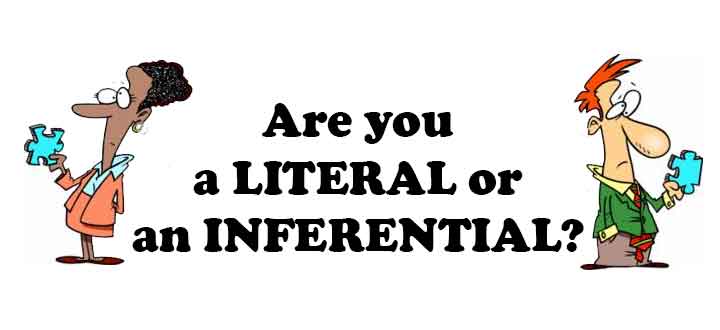Hypnotic Suggestibility is a scale that was earlier used to understand whether or not a person is “hypnotizable“. It was believed that the ones who accepted suggestions easily were highly suggestible, and the ones who didn’t were less suggestible. The higher the suggestibility score for a person, the more hypnotizable they were considered to be.
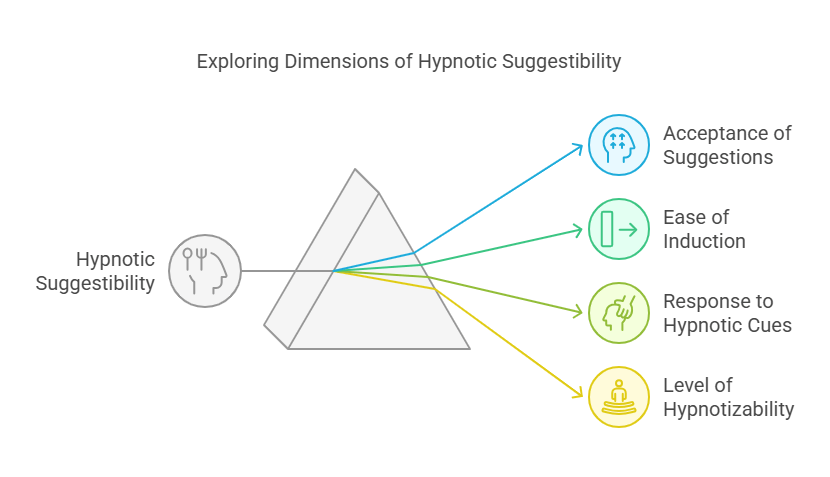
Re-defining Suggestibility
Through his research, John Kappas showed that almost everyone accepts suggestions, provided the suggestions are given in a way that the listener is comfortable receiving.
Hence he re-defined the term suggestibility.
As per Kappas’s definition, Hypnotic Suggestibility is the way in which people receive and interpret information. He elaborated by saying that people can receive and interpret information in two ways:
- Literally
- Inferentially
The literal are the kinds who take information as it is, at face value.
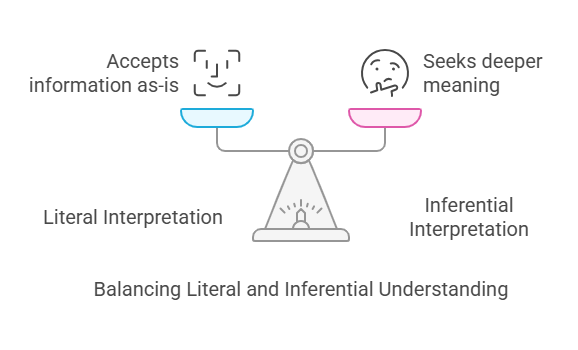
For e.g. to a literal, even if you sarcastically say something good, they believe it to be true by taking it at face value and feel good about it. They may even say thank you for it.
This doesn’t mean that they are stupid. It is just that they simply take information literally.
On the other hand, an inferential as a tendency to read between the lines. So even when you genuinely give a compliment to an inferential, the inferential might interpret that you want something from them.
Having said this, we are not 100% literal or 100% inferential; we are a mixture of both, but we could likely be more of a literal or more inferential is specific situations or with specific people.
Application of Hypnotic Suggestibility in day to day life
This understanding of suggestibility can be very useful in our day to day life.
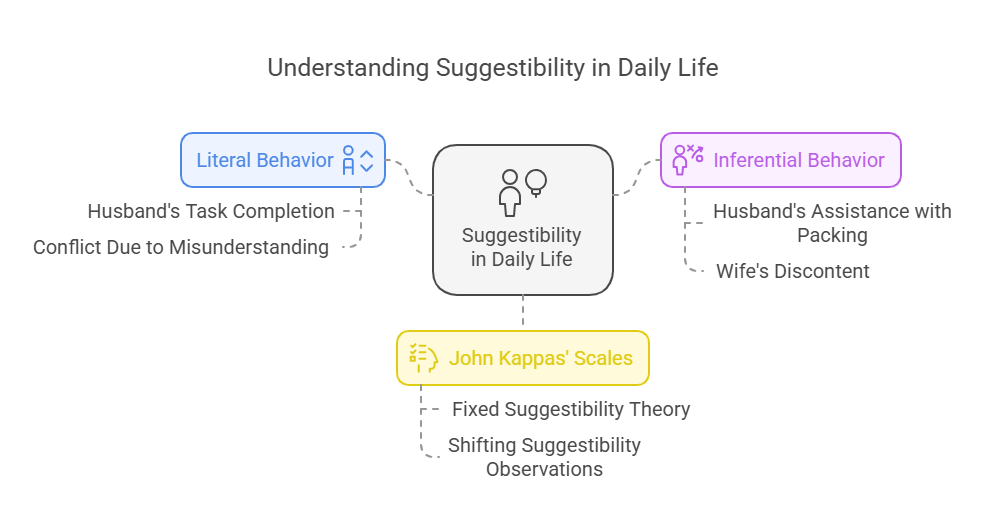
Let’s take an example of a couple wherein the husband has less knowledge and interest in the kitchen. Before leaving the house, the wife tells him to put the milk in the refrigerator. So, he takes the information literally and does exactly what is told, without realizing that even vegetables are kept outside and that need to go in the refrigerator too. As a result of which, there is a conflict in the evening when the wife sees spoilt vegetables.
On the other hand, say the husband is very inferential when it comes to receiving information about traveling. His wife is planning to go out of town; she might say I am yet to fold my clothes. He might infer that she needs help and may not only end up folding the clothes but also pack her bags and list the places she could go to.
This behaviour (result of his inference) might irk the wife because she never asked for it. Over here, the husband has interpreted too many things already.
So at one place he was literal, and at the other inferential.
In order to explain suggestibility better, John Kappas came up with two scales. These scales were derived based on questionnaires. Since Kappas believed that suggestibility gets fixed at the age of 14, the questionnaires focus on questions before the age of 14. We no longer subscribe to this idea. In interactions and in therapies, it is observed that with time and depending on certain factors (which we cover in our courses), SUGESTIBILITY SHIFTS!
Other Applications of theory of Hypnotic Suggestibility
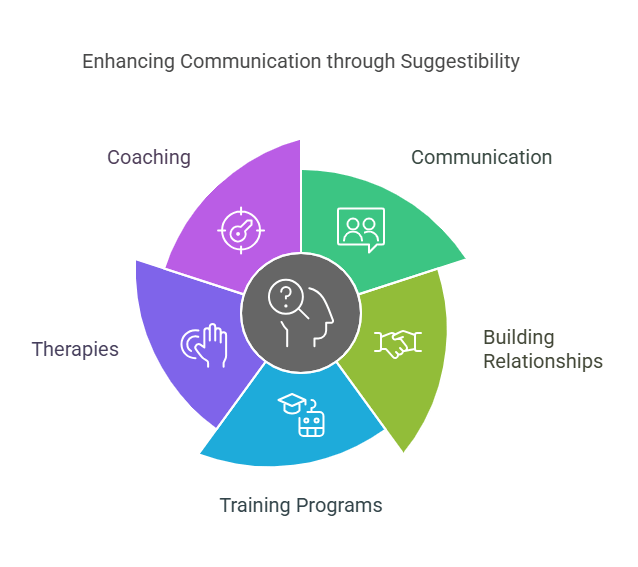
Along with improving our ability to communicate and build happier relationships, this understanding of Suggestibility and how it shifts is very useful in other areas like conducting a training program, taking therapies & coaching.
For example, in any training program or workshop there are many people who come from different brackets of life and are very different from one another. Some maybe more inferential in nature, whereas some maybe more literal. Thus, to enhance the effectiveness of the program, it becomes very crucial for a trainer / facilitator to be able to appeal to all sorts of people, whether inferential or literal.
The content design, its delivery & debriefing needs to be a good mix of literal and inferential suggestions, which, when accepted by participants, will lead to the desired shift in the participants level of knowledge, skills, attitude or even the belief as the case maybe.
If you are a trainer or a coach who would like to make incorporate the principles of suggestibility in your training programs or in coaching session, you must enroll for our comprehensive coaching certification program, Cognitive Hypnotic Coaching™, or if you are a psychologist who would like to learn more about hypnosis and about suggestibility, you can check out our internationally accredited course on Cognitive Hypnotic Psychotherapy™.
